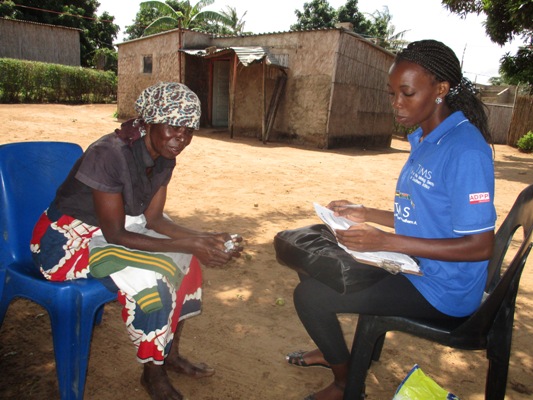- About
- Topics
- Story
- In-Depth
- Picks
- Opinion
- News
- Donate
- Signup for our newsletterOur Editors' Best Picks.Send
Read, Debate: Engage.
| July 01, 2019 | |
|---|---|
| topic: | Health and Sanitation |
| tags: | #Zimbabwe, #HIV, #women's rights |
| located: | Zimbabwe |
| by: | Cyril Zenda |
This was because in 2009, her husband reported her to the police for allegedly infecting him with the HIV virus. In 2012, despite the lack of evidence, she was convicted of the criminal offence.
She discussed the matter with her husband and the two agreed to take measures to protect the child. However, after the child was born, her husband became increasingly abusive, forcing Mlilo to report him to the police. Her husband retaliated by filing HIV transmission charges against her. Since then, life became uncertain for Mlilo as she had to contend with criminal status, thanks to the country’s 2001 law that makes HIV transmission a criminal offence.
It is with this background in mind that many Zimbabweans that have suffered the same fate as Mlilo heartily welcomed the recent announcement by the country’s Justice minister, Ziyambi Ziyambi that the government had decided to decriminalise HIV transmission.
“When this legislation came into effect, the thinking was that we need to control the spread of HIV by criminalising those who transmit it to partners willingly”, Ziyambi said in an address to Parliament. “But the global thinking now is that law stigmatises people living with HIV and Aids and studies have shown that it does not produce the results that were intended. What the Ministry (of Justice) is going to do is to repeal that section of the law and ensure that we keep up to speed with modern trends in the world.”
The move to decriminalise HIV transmission comes three years after Mlilo and a colleague lost a court case in which they challenged the constitutionality of the law under which they were charged.
The announcement was welcomed by many individuals and organisations that for a long time have campaigned against the law.
The Zimbabwe Civil Liberties and Drug Network (ZCLDN), a human rights organisation said the move was long overdue.
“The global thinking is that this legal provision stigmatises People Living With HIV/AIDS (PLWHIV) and as an organisation that deals with key populations, we warmly welcome the justice minister’s response,” the organisation said.
“As ZCLDN, our suggestion is that a better alternative to the use of the criminal law, are measures that create an environment that enables people to seek testing, support and timely treatment, and to safely disclose their HIV status.”
According to the Oslo Declaration on HIV criminalisation, the practice was doing more harm than good to public health and human rights.
As Edwin Cameron, a Judge of the Supreme Court of Appeal of South Africa, has noted, “prosecutions for HIV transmission and exposure, and the chilling content of the enactments themselves, reinforce the idea of HIV as a shameful, disgraceful, unworthy condition.”
In 2001 Zimbabwe introduced the Sexual Offences Act, which criminalised the wilful transmission of HIV. The law was later updated to include those who suspected they could be HIV positive but didn’t inform their sexual partners. The law allowed people to be criminally charged for deliberately infecting other people with HIV.
This was at a time when policy-makers were in "panic mode" as HIV/AIDS was ravaging the population of this southern African nation.
Ironically this law, a majority of whose victims turned out to be women, came about as a result of activism by women’s rights groups; they sought to empower women who were being recklessly exposed to HIV by rapists and, in some cases, by their partners.
Tinashe Mundawarara, manager of the HIV and law unit of Zimbabwe Lawyers for Human Rights, said the media often sensationalised such cases and violated the privacy rights of those involved, thus discouraging people from testing or seeking health services.
“Other officials said the impression was created that people living with HIV were criminals because of their status. The policy of widespread testing of women often led to domestic violence when the woman went back home. They were blamed for bringing infection into the house, despite not knowing who infected whom.”
Laws like this exist in many jurisdictions, including a number of US states, Russia, the UK and more than 30 sub-Saharan countries.
Zimbabwe is one of the countries most affected by HIV/AIDS as it is estimated that 1.55 million people out of a population of 14.2 million are living with HIV.
By copying the embed code below, you agree to adhere to our republishing guidelines.
